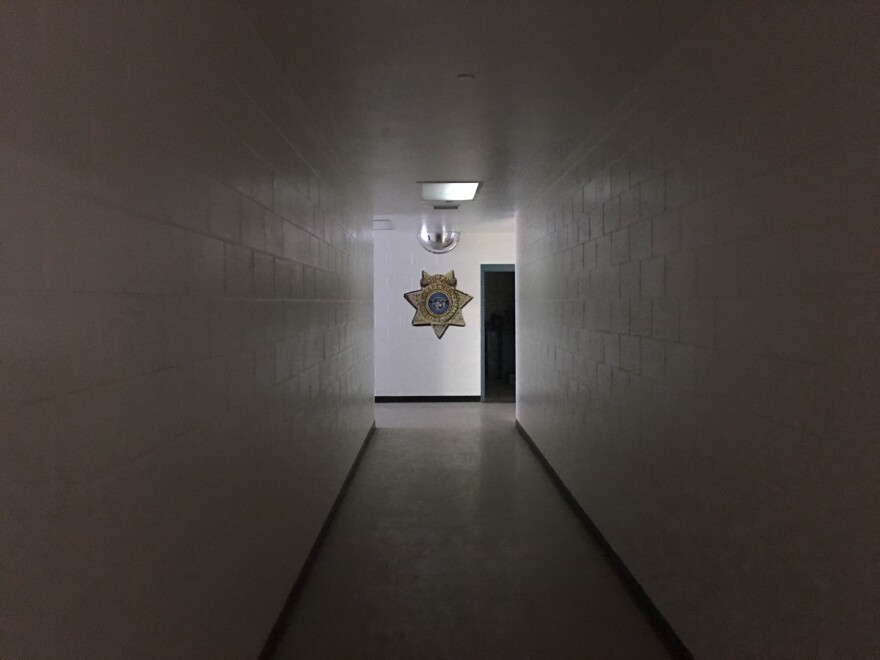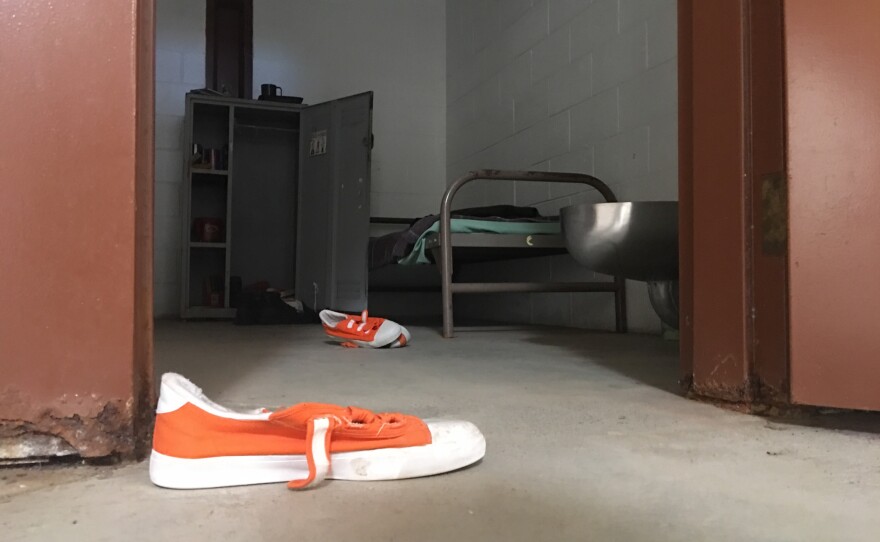Californians will vote in a couple weeks on whether or not the recreational use of marijuana should be legalized or not. And as FM89’s Ezra David Romero reports one Central California city is looking at how it can cash in on this green revolution.
Patrick Keough wanted out of Coalinga about five years ago. The 18,000 people or so that call this town in the hills of the coastal range home couldn’t support his realty company.

“I told my wife I want to leave, I want more opportunity for us and she said well I love my job,” says Keough. “And I said if we are going to stay we have to get involved in city government and we have to make something for our children to have hope.”
He ended up winning a spot on the Coalinga City Council in 2012. Speed up to last December. The 44 year old is now the Mayor-Pro Tem and the city is facing yet another problem. It’s in the red.
That’s when Keough had an epiphany while sitting in front of an abandoned prison owned by the city. It had been run by a private company until Governor Jerry Brown closed it in 2011.
"I would look and I would think to myself what can I put here? What can we do? It hit me. This could be a medical marijuana facility." - Patrick Keough

He ran with the idea and in January the city council unanimously voted to allow commercial cultivation, delivery, distribution in the city and directed staff to begin the ordinance process. In July the city passed a temporary ordinance so companies could come to Coalinga, look at land and even buy if they want to.
The city is working on a permanent ordinance. That opened the door for Keough to find a suitor for the vacant 77,000 square foot Claremont Custody Center on the edge of town.

The facility used to hold around 500 prisoners. Now it's empty and could be a money maker for the city.
“What you are seeing right now is where the employees would enter,” says Keough. “A little command center, would of had all the keys.”
The prison is sort of the perfect place for marijuana cultivation. It’s protected by a chain link fence with spirals of razor wire on top. Inside are two large courtyards, double dining rooms, a kitchen, laundry facilities and six dormitories.
“We’re going into westside pod where the prisoners would’ve been housed,” Keough says. “The pod looks as if the prisoners recently moved out.”
“Over on that wall you can see where the payphones would’ve been,” Keough says. “So if they had earned the privilege of having a call.”
Keough points to the underside of a bunk to “some graffiti, some pictures of girls, a picture of a truck.” Memories that a prisoner left behind.
Keough searched for months for the perfect buyer. The city finally decided to go with the Southern California based company Ocean Grown Extracts for a grand total of about $4.1 million. Keough says that amount alone will pay off $3.5 million of city debt. The deal is getting even more press because the company announced that reggae artist Damian Marley is their partner.
"Most people didn't have a problem with prisoners here. You're not going to see those plants and those plants aren't going to go out and hurt anybody." - Greg Cody

“The benefits go beyond just getting high if that’s what you want to call it,” says Marley. “It’s proving for itself - the more people experience it, get involved and exposed to it - that it’s useful.”
If everything goes as planned the company will sell cannabis oil made in Coalinga wholesale to dispensaries. Marley says the the first marijuana crop will be ready to harvest by January.

“In general it’s a time of pioneering because all this kind of business is new,” Marley says. “The laws keep on changing. This is really a new frontier for everyone involved.”
There are clear benefits for the city. Ocean Grown Extracts says it’ll employ around 100 people and promises to pay $2 million to the city in lease and tax payments yearly. But not everyone in the community is so keen on the idea. Arthur Douglas has lived in Coalinga since the fifties. He’s not sure about the deal and says he has some reservations.
“I have no problem with a dispensary in Coalinga so people can get their medicine,”says Douglas. “My problem is with the doctors that are doling out medical marijuana cards. If a kid sneezes and he’s 18 years old he can get a medical marijuana card. I don’t agree with that.”
Others likecattle rancherGreg Cody support the project and hope the proposition on the November ballot legalizing recreational marijuana use passes.
“I think we need to think outside the box and continue to move forward with this.,” Greg Cody says. “You know most people didn’t have a problem with prisoners here. You’re not going to see those plants and those plants aren’t going to go out and hurt anybody.”

Back at the prison Patrick Keough is hopeful that Coalinga is set for the future. His term on the council ends in December and he says the city is courting 12 other cannabis related companies.
“You go to our Starbucks, you see people who are not from town,” Keough says. “You see them wearing suits. You know these are business people, people with money, innovation, ideas and they’re all coming to our town.”
But until the city council votes on a permanent ordinance in November and then escrow closes the facility stands vacant and dreams of revamping this town are on hold.







